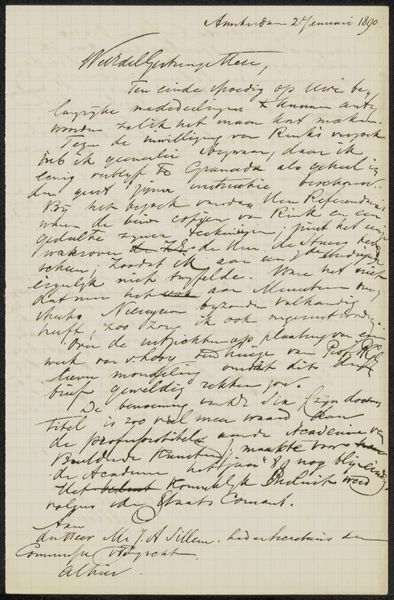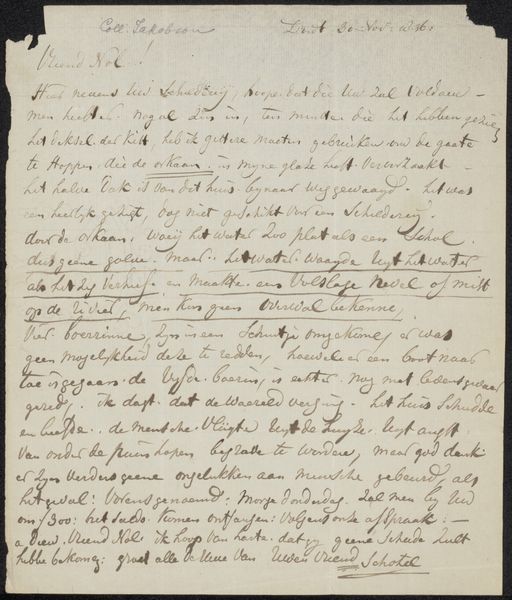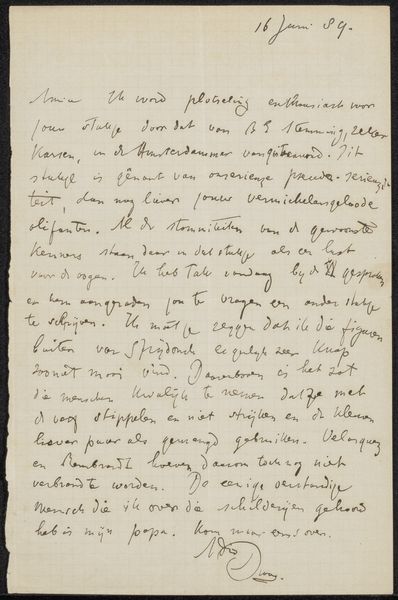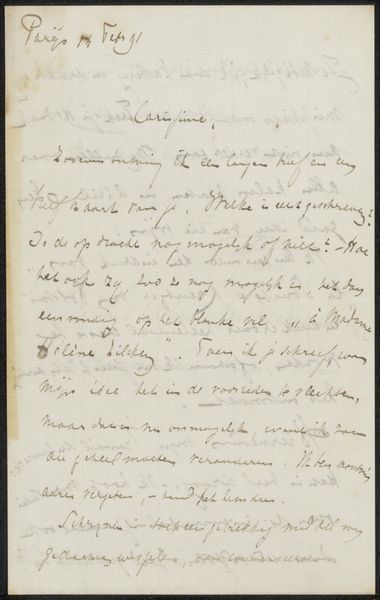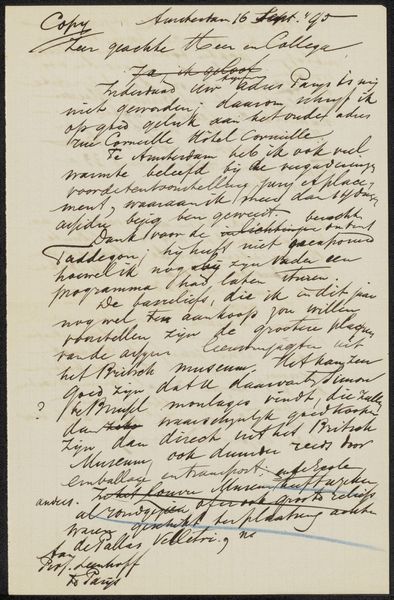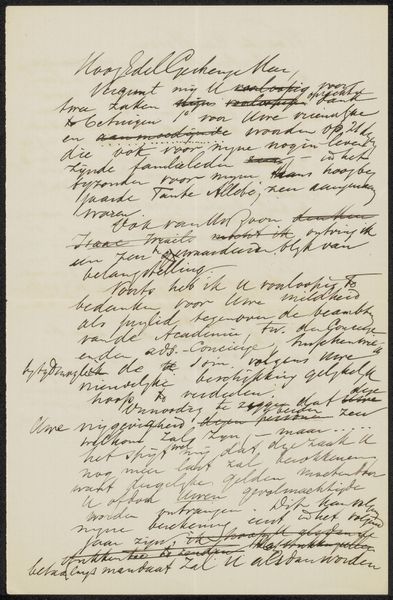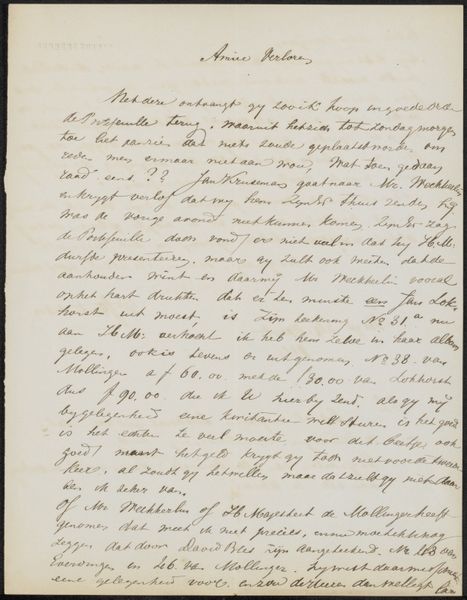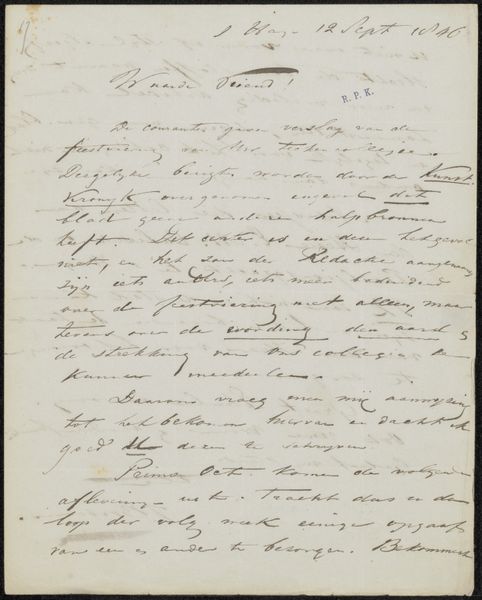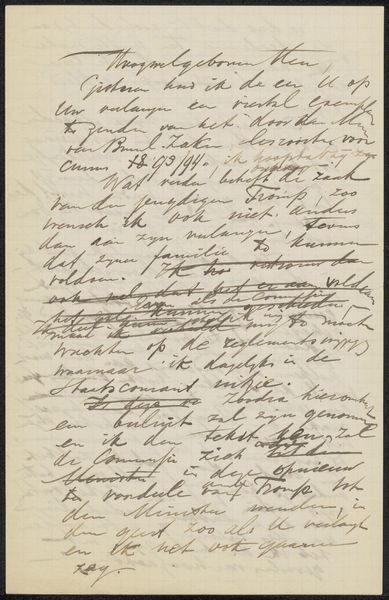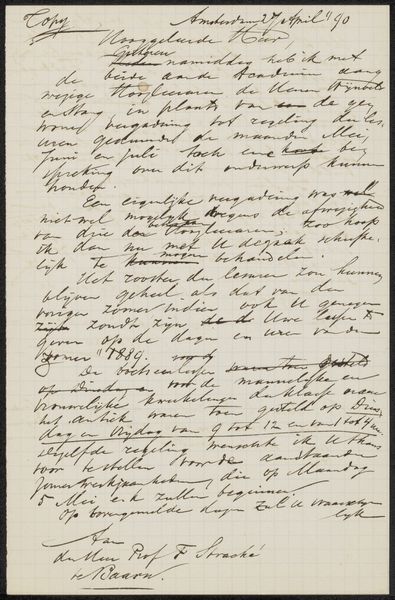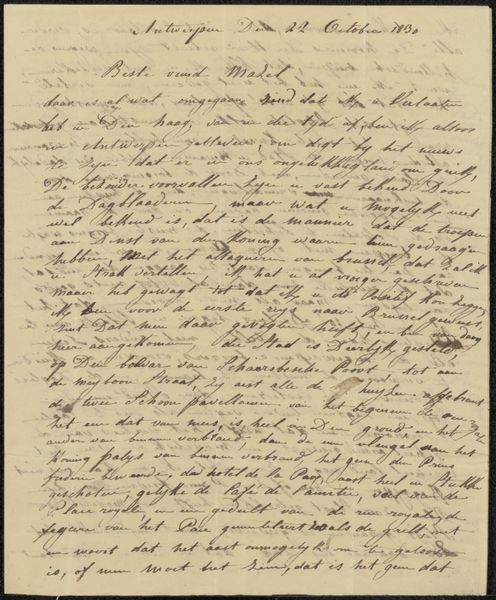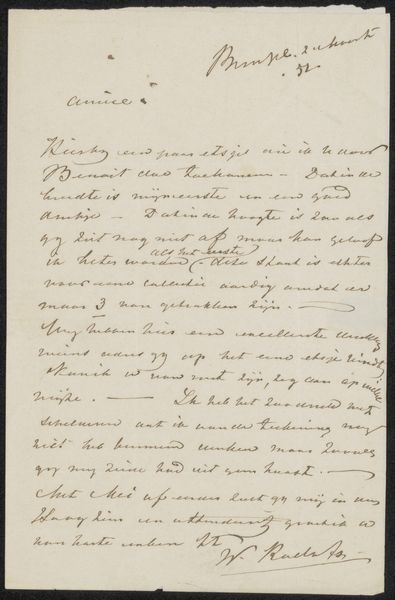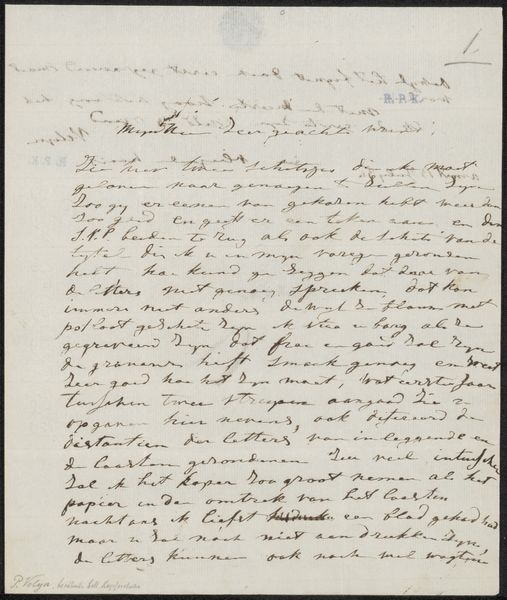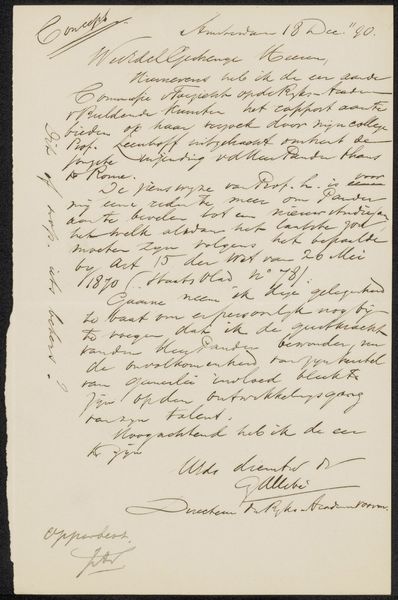
drawing, paper, ink, pen
#
pen and ink
#
drawing
#
ink drawing
#
pen sketch
#
hand drawn type
#
paper
#
personal sketchbook
#
ink
#
ink drawing experimentation
#
pen-ink sketch
#
pen work
#
sketchbook drawing
#
pen
#
sketchbook art
#
calligraphy
Copyright: Rijks Museum: Open Domain
Curator: This piece is titled "Brief aan Arnoldus Lamme" by Jozef Geirnaert, possibly dating between 1821 and 1826. It is created with pen and ink on paper. Editor: My first impression is of incredible density, a field of minuscule symbols. It has a hushed, almost secretive air. Curator: Absolutely. Look closely, and you'll appreciate the physical effort, the hand movements required to create this concentrated block of script. Consider the production, the repetitive nature of handwriting before mass printing became widespread, each letter a conscious act. This isn't just about transferring information; it's a crafted object. The materials, relatively simple—pen, ink, paper—hold the weight of communication. Editor: But what kind of communication? Look at the careful looping, the stylized ascenders and descenders. This isn’t merely a functional text; there’s an inherent visual code, a learned system instantly recognizable to its intended recipient. Consider the symbolism, almost a performance of societal standing embedded within its formal letter writing. This reflects aspirations of an elevated life and values. Curator: Yes, the execution signals social codes, but also practicality. What kind of ink did he use, how was it made? How long did this take him? We see the intersection of labor and aesthetic choices. This reflects on value – was writing considered “work” or artistic expression? How much value does a hand-written letter command in his socio-historical milieu? Editor: I find myself lingering over individual strokes. Each character seems charged with personality. Curator: And that personality, materially speaking, becomes inseparable from Geirnaert’s choice of tools, his ink, his specific writing style that was both cultivated and perhaps, unique to his making of marks and art. Editor: Studying it closely, this isn't merely a document; it's an echo of a relationship, filled with secrets only those two could truly understand. It almost feels as though there is an additional symbolism in its secrecy or unknowability to viewers. Curator: For me, considering the tools used shifts it from the untouchable past to a tangible reality; what we see as beautiful artifact, was born from practical labor and material availability. Editor: Seeing your take has enhanced my perception of its craftsmanship—both linguistic and visual. Thank you. Curator: The interplay of material reality and coded social performance really gives such drawings a strong, almost physical presence in art.
Comments
No comments
Be the first to comment and join the conversation on the ultimate creative platform.
